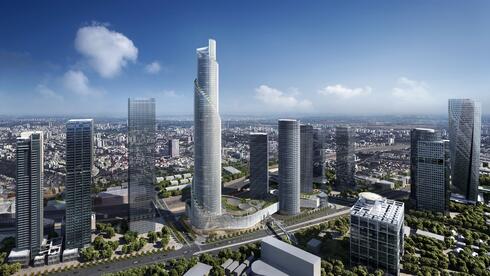Amid two years of war, Israel’s real estate sector has continued to move forward. The past year closed with transactions worth hundreds of millions — and in some cases billions — of shekels across housing, retail and office sectors, hinting at a possible shift in the market.
From income-producing real estate companies expanding strategically, to retail groups moving from tenants to property owners and massive office lease agreements — industry experts told Ynet the sheer volume of deals highlights both the sector’s resilience and the growing competition for prime assets. These were the most significant transactions of the Hebrew year that just ended.
In September 2024, Melisron Group, controlled by Liora Ofer and managed by Ophir Sarid, acquired the remaining 50% of Aviv Initiation from Doron Aviv and Dafna Harlev for 625 million shekels, resulting in a total valuation of 1.25 billion shekels for the company. Melisron now holds 100% ownership, renaming the firm Aviv Melisron.
In November 2024, Tzachi Didi was appointed CEO of the newly structured company, which specializes in residential construction and urban renewal. Aviv Melisron holds a pipeline of about 4,700 housing units under planning and construction, with another 5,000 units in early stages. The acquisition marks a strategic expansion for Melisron beyond its core income-producing real estate portfolio and into the residential sector.
In August 2024, after lengthy negotiations, Azrieli Group announced it would acquire a 67% stake in developer Zemach Hammerman at a valuation of 870 million shekels, delisting the company from the Tel Aviv Stock Exchange. The Ben-Avraham and Feiglin families retain 33% ownership.
Founded in 1997 and publicly traded since 2007, Zemach Hammerman has built more than 11,000 residential units and 356,000 square meters of offices, retail and industrial space. For Azrieli, led by chairwoman Danna Azrieli, the acquisition signals a significant entry into residential development alongside its malls and office towers, strengthening its status as a leading real estate player.
6 View gallery
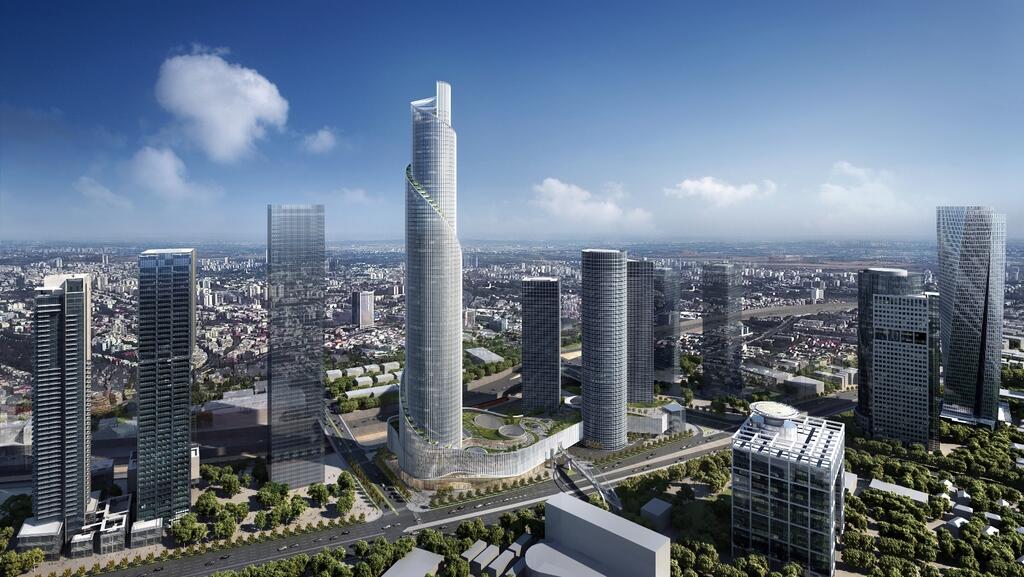

Azrieli Group Spiral Tower
(Rendering: KPF)
In September 2024, Mivne Real Estate, led by CEO Uzi Levy, signed a massive lease deal with coworking firms ROOMS and Switchup from the Fattal Group. The agreement, valued at about 500 million shekels over 11 years, covers 25,000 square meters in a new 13-story building and adjacent tower on Yigal Alon Street in Tel Aviv, with 210 parking spaces.
The tenants later expanded their lease to about 35,000 square meters. Annual rent and management fees are expected to average 45 million shekels during the first term.
6 View gallery
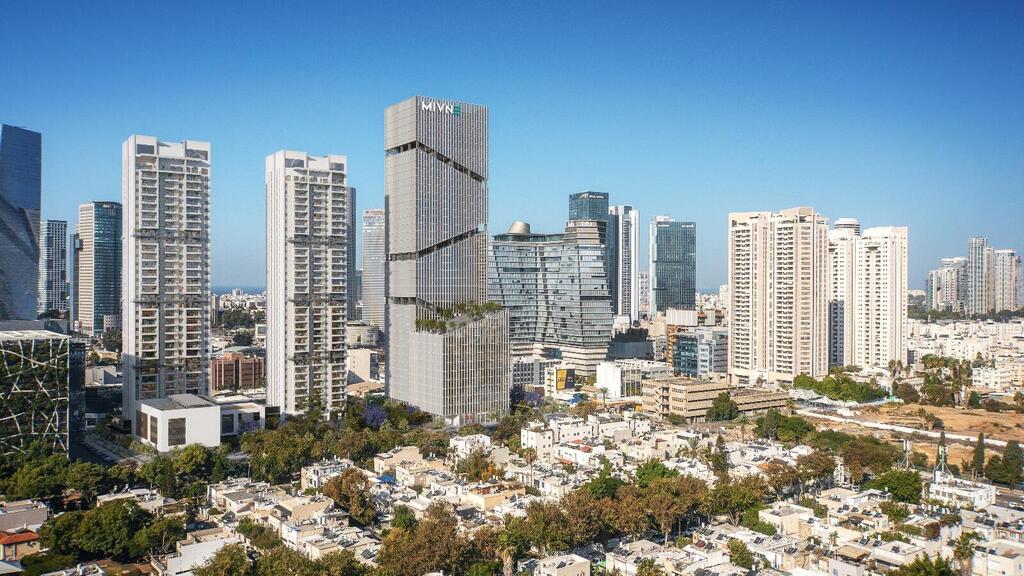

The HaSolelim project in Tel Aviv
(Rendering: Mivne Group)
In June, defense company Rafael Advanced Defense Systems purchased 16,000 square meters of office space across six floors in the Hassan Arafa complex in Tel Aviv for 530 million shekels — about 30,000 shekels per square meter. The sellers were Phoenix Insurance, Acro Real Estate and Yuvalim City Boy, developers of two towers in the area.
Rafael, which currently operates from the Midtown Towers, is expected to move into the new site in about five years, once construction is completed. Industry sources say the deal cements Rafael as a strong, strategic buyer in the office market and boosts marketing prospects for the rest of the project.
6 View gallery
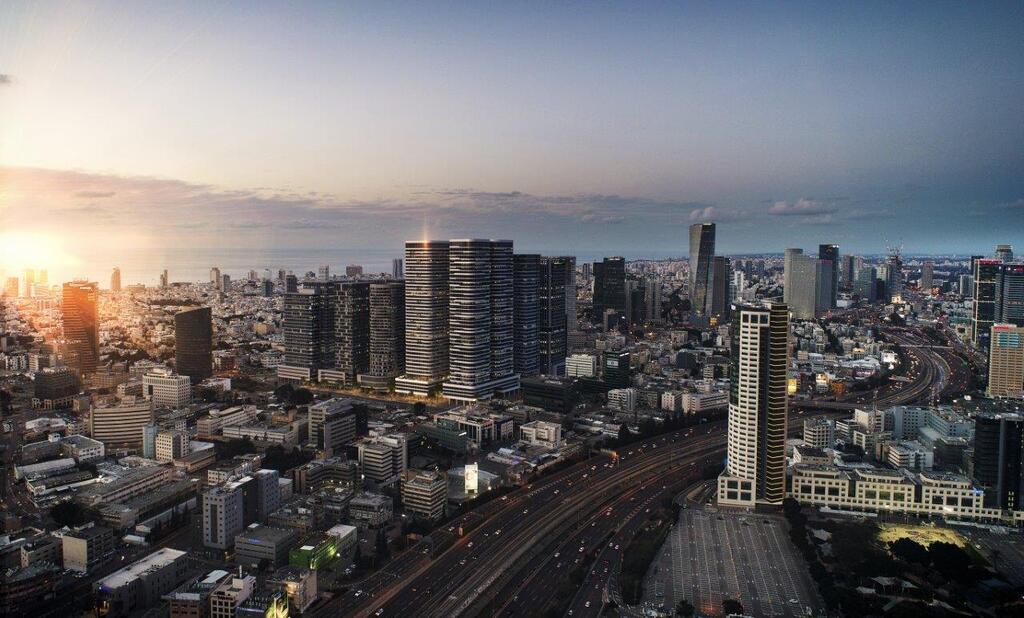

Hassan Arafa complex
(Rendering: 3D)
In March 2025, cybersecurity giant Check Point, led by CEO Gil Shwed, together with developer Israel Canada, won a Tel Aviv municipality tender for long-term lease rights to a 13.5-dunam (3.3-acre) parcel in the Bitzaron neighborhood.
The 49-year lease, valued at 818 million shekels, includes an option to extend. Plans call for a 65,000-square-meter office campus for Check Point, two residential towers totaling 35,000 square meters and 6,000 square meters of retail space. The deal marks Check Point’s first real estate acquisition.
In July 2025, IKEA Israel, owned by the Fisher and Bronfman families, purchased its Netanya site from Harel Insurance for 500 million shekels. The deal covers a 17.4-dunam plot and a 35,000-square-meter store building previously leased.
Harel bought the property in 2012 for 289 million shekels and has collected about 25 million shekels a year in rent since then. The purchase underscores IKEA’s shift toward owning strategic properties outright.
6 View gallery
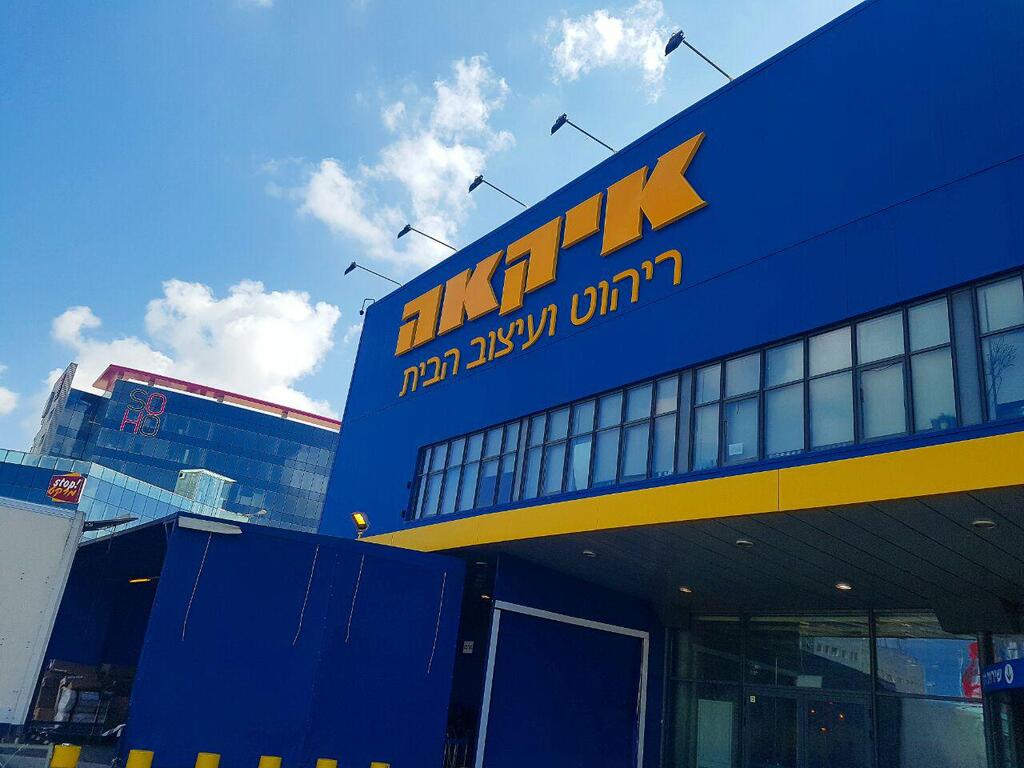

IKEA, Netanya
(Photo: Merav Kristal)
In August, Barak Capital Real Estate announced a financing deal with landowners in the Sde Dov redevelopment zone in north Tel Aviv. Alongside Migdal Insurance, Menora Mivtachim and Amitim pension funds, Barak will provide 1.153 billion shekels in credit frameworks for 203 rights holders.
The funds will support construction of 372 apartments, 66 hotel units and retail space on the site — one of the most sought-after in the country.
6 View gallery
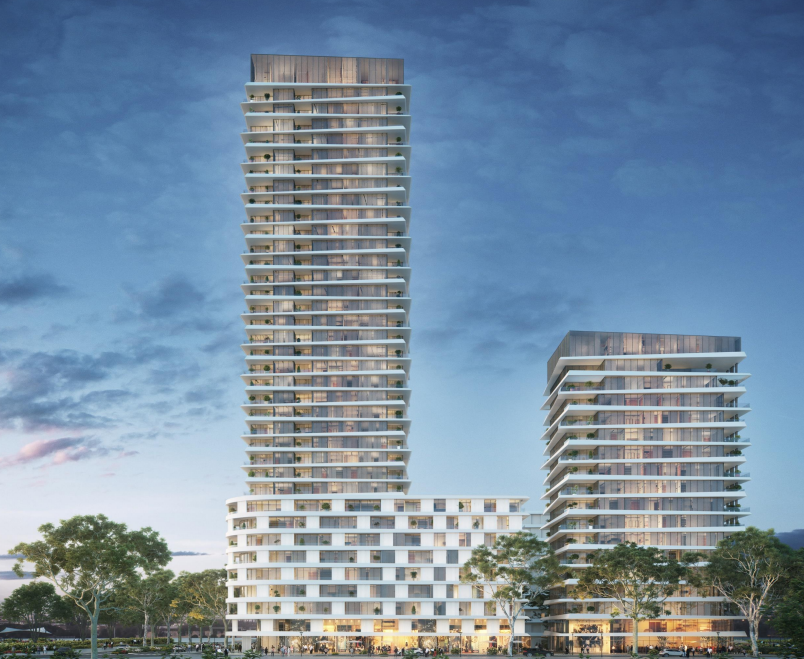

Sde Dov project
(Rendering: Yaski-Mor-Sivan)
In January 2025, Reality Real Estate Fund and partner Minrav sold their holdings in a flagship site in Tel Aviv’s HaThiya complex to Yuvalim-City Boy for 250 million shekels. The lot allows for 186 apartments in a 25-story tower.
They also signed an option agreement to sell another 1.5-dunam lot with rights for 18,000 square meters of commercial space for 110 million shekels. Reality previously consolidated about 10.5 dunams in the area, sold half to Minrav in 2021 for 187.5 million shekels, and now fully exited the project.
6 View gallery
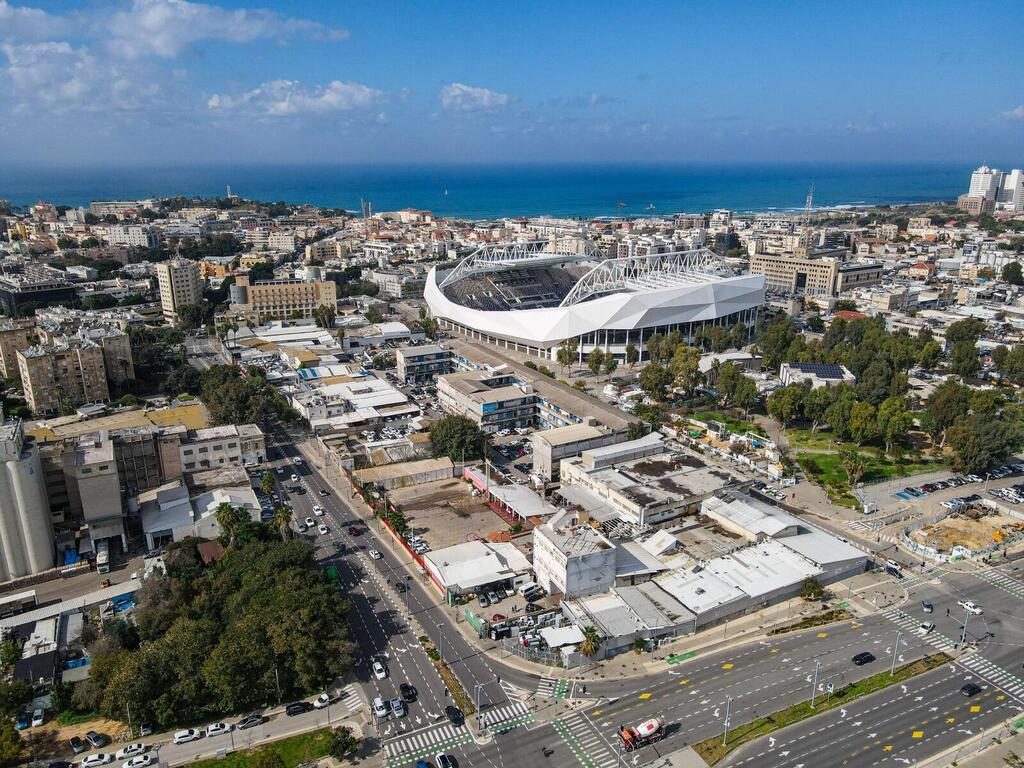

HaThiya complex
(Photo: Itay Weinbroom)
Several major institutional players announced large investments in urban renewal projects over the past year. In January, Acro Real Estate signed agreements with Phoenix Insurance for up to 410 million shekels, including 250 million shekels earmarked for urban renewal.
In March, Hachsharat Hayishuv Urban Renewal announced Menora Mivtachim would invest 200 million shekels across seven residential projects, totaling 1,440 housing units.
In July, Bonei Hatichon revealed Clal Insurance would invest up to 250 million shekels in its urban renewal projects, beginning with 150 million shekels across five approved developments in Rehovot, Ramla, Kfar Saba and Yavne.
In May, rental housing fund Megurit announced the purchase of 75 apartments in the Gafen Tower in Ramat Gan for 311.5 million shekels, including 116 parking spaces and storage units. Annual rental income is estimated at 7.7 million shekels, reflecting a 2.5% yield.
Earlier, in March 2025, Megurit said it had acquired 47 apartments in Tel Aviv’s HaSolelim project from Mivne and Tidhar for 190 million shekels.
Appraiser and attorney Erez Cohen told Ynet that this year’s deals reflect a real estate market at a crossroads, with both income-producing properties and residential projects attracting investor interest.
 Erez CohenPhoto: Omer Koren
Erez CohenPhoto: Omer Koren
“On the one hand, we see institutional players and real estate groups making major acquisitions, such as Azrieli’s purchase of Zemach Hammerman or Rafael’s deal in Tel Aviv,” Cohen said. “On the other hand, there’s a clear decline in sales of ‘virgin’ land, with fewer state tenders. The focus is on proven, quality assets in strategic locations.”
Cohen added that if current trends continue, more major deals are likely in the coming year, particularly in urban renewal and strategic assets. “We’re also awaiting the expected NVIDIA deal, which would highlight ongoing interest in Israeli real estate from global tech giants,” he said.
 Sarit ItzhakovPhoto: Efrat Mazor
Sarit ItzhakovPhoto: Efrat Mazor
Sarit Itzhakov, CEO of Colliers Israel, noted a clear recovery in the office market this year. “In the last quarter especially, demand has surged, focused on Tel Aviv, Petah Tikva and Ra’anana. Contracts signed so far this year cover 340,000 square meters nationwide, 40% of them in Tel Aviv — already more than all of last year.”
She said demand for another 200,000 square meters remains unmet, mostly from tech and finance firms shifting back to office work. “Tel Aviv remains the leader, especially around the Azrieli–Sarona–Yigal Alon triangle, thanks to accessibility and modern offices,” she said.
 Attorney Avraham AbermanPhoto: Kobi Mahag
Attorney Avraham AbermanPhoto: Kobi Mahag
Attorney Avraham Aberman, co-managing partner at S. Friedman, Abramson & Co., said that despite political instability, the market showed resilience with major transactions. While apartment sales slowed due to financing and interest rate challenges, he said price declines would likely stabilize because of sustained demand.
“In the commercial sector, institutional and private players are still pursuing large deals,” Aberman added. “The IKEA-Harel transaction is a textbook win-win. If the political situation improves, the entire industry will benefit — especially the housing market.”
